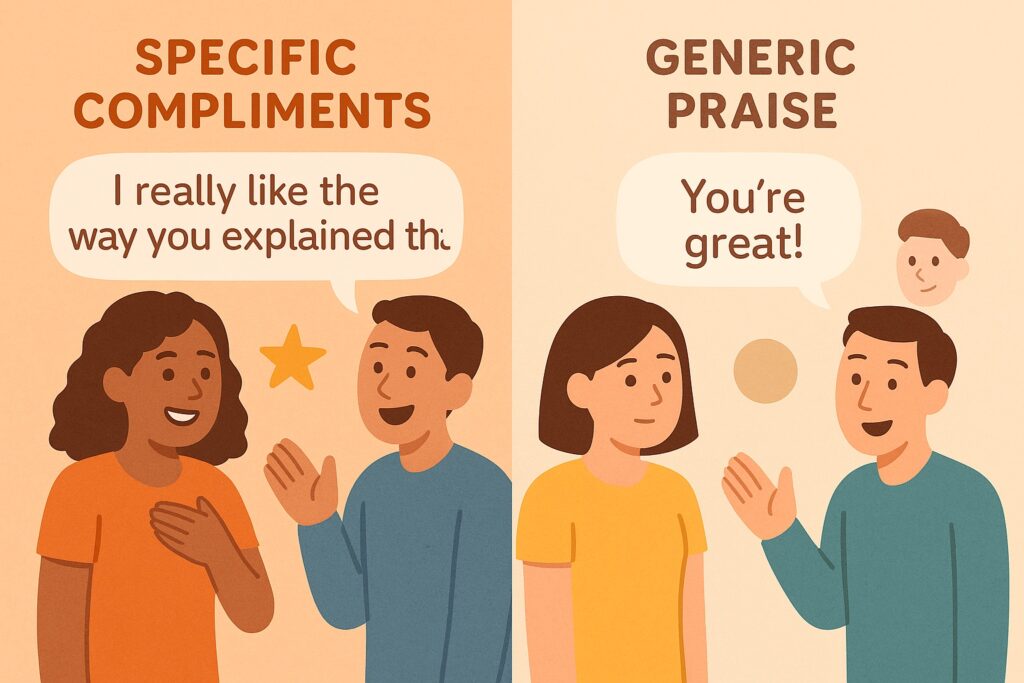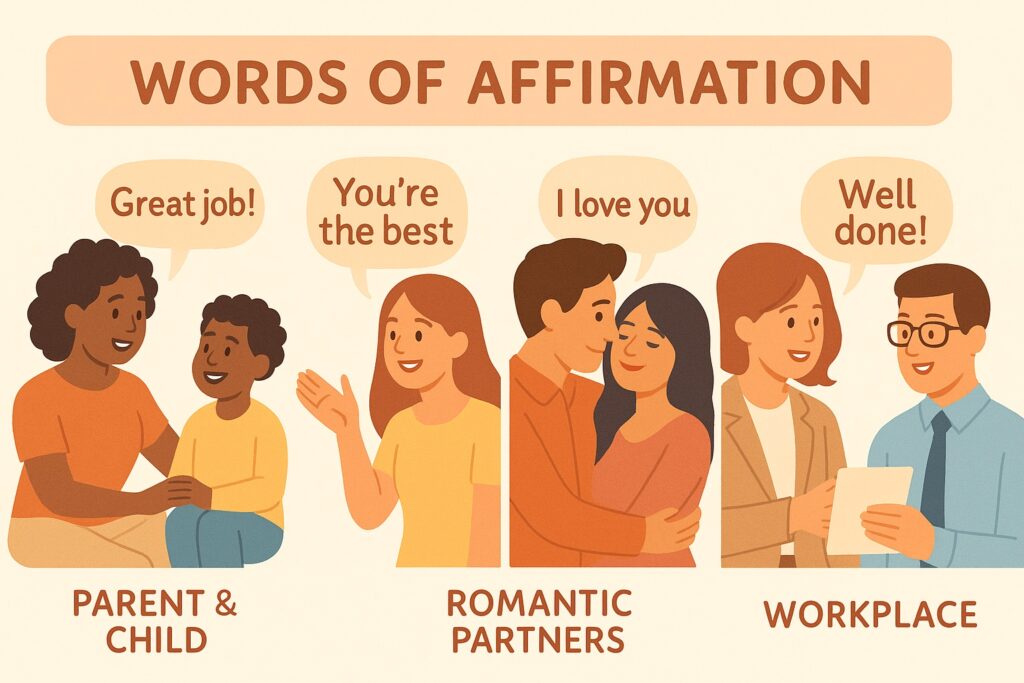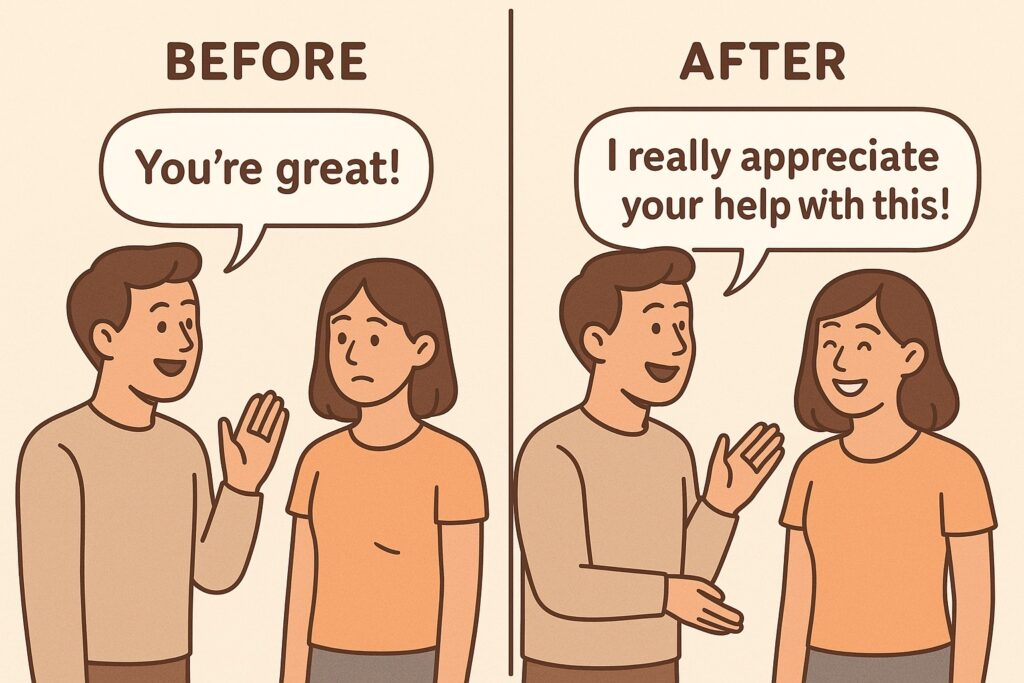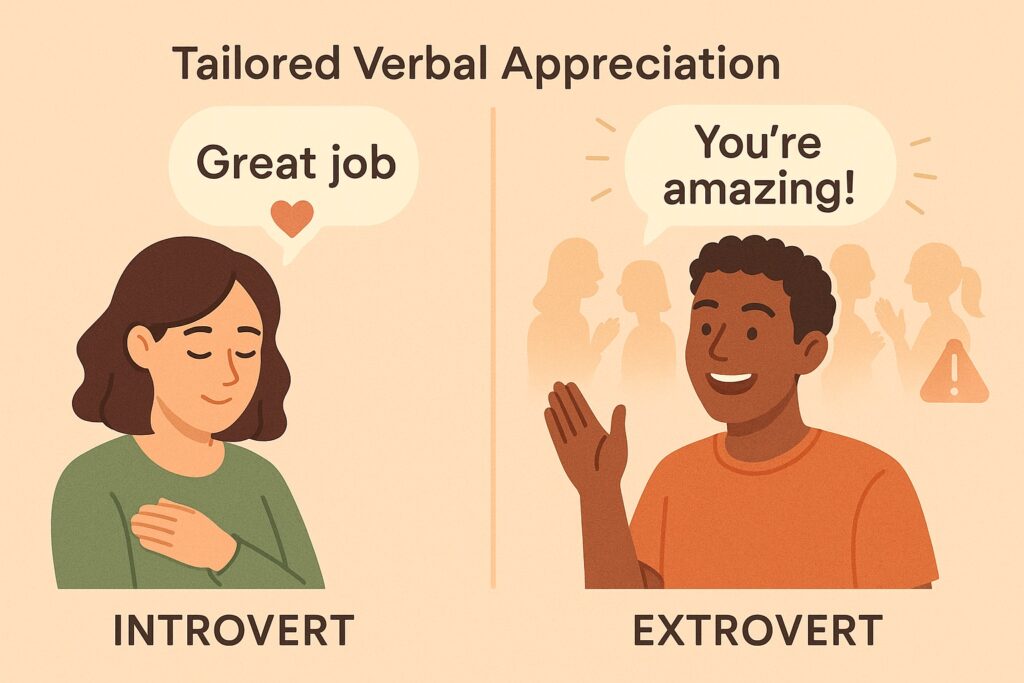Words of Affirmation: A Complete Guide to The Verbal Love Language and Why It Matters

Words of Affirmation: The Complete Guide (2025)
“I just wish he would tell me he appreciates me.”
Sarah sits across from her husband during dinner, watching him methodically eat the meal she spent an hour preparing. He’s content, satisfied, clearly enjoying the food—but he doesn’t say anything. No “this is delicious,” no “thank you for cooking,” no acknowledgment of her effort. To him, eating everything on his plate is the compliment. To Sarah, whose primary love language is Words of Affirmation, his silence feels like indifference.
This scenario plays out in countless relationships where one partner needs verbal recognition to feel truly loved, while the other assumes their actions speak loudly enough. For people whose primary love language is Words of Affirmation, spoken and written expressions of appreciation, encouragement, and love aren’t just nice to hear—they’re essential for emotional connection.
If you’ve ever felt invisible despite your partner’s loving actions, or if you struggle to understand why someone needs to “hear” love instead of just feeling it through gestures, this guide will help you navigate the complex but powerful world of verbal affection.
Understanding Words of Affirmation: More Than Just Compliments
Words of Affirmation goes far deeper than casual compliments or obligatory “I love yous.” This love language encompasses all the ways we use spoken and written words to build up, encourage, appreciate, and emotionally connect with another person.
Research in relationship psychology shows that verbal affirmation activates the same neural reward pathways as physical touch or acts of kindness, but for people with this primary love language, verbal expressions create stronger and longer-lasting emotional impact than other gestures.
The Core Components of Words of Affirmation:
Appreciation and Gratitude:
- Acknowledging efforts, both big and small
- Expressing thankfulness for who they are, not just what they do
- Recognizing character qualities and personal growth
Encouragement and Support:
- Offering confidence during challenges
- Believing in their abilities and dreams
- Providing emotional support through difficult times
Affectionate Expression:
- Saying “I love you” with meaning and regularity
- Expressing affection appropriate to the relationship
- Sharing positive feelings and emotional connection
Validation and Recognition:
- Acknowledging their feelings and experiences
- Recognizing their contributions and importance
- Affirming their value in your life and relationships
Why Words of Affirmation Can Be Challenging to Give

Many people struggle with expressing Words of Affirmation, even when they genuinely want to show love and appreciation. Understanding these common barriers can help you work through them.
Common Challenges:
“I’m not good with words” Many people feel inadequate when it comes to verbal expression, especially if they grew up in families where love was shown through actions rather than words. The fear of sounding awkward or insincere can prevent genuine attempts at verbal affirmation.
“They should know how I feel” Some people believe that consistent actions should be enough to communicate love and appreciation. The idea that feelings need to be verbalized can feel redundant or even demanding.
“It feels forced when I have to think about it” Planned or intentional verbal affirmation can feel artificial to people who aren’t naturally verbal. However, research shows that intentional expressions of appreciation actually strengthen relationships more than spontaneous ones.
“I don’t want to sound cheesy or over-the-top” Fear of seeming inauthentic or overly sentimental prevents many people from expressing genuine appreciation. This concern often stems from cultural messages that equate emotional expression with weakness.
Cultural and Gender Barriers: Some cultures and family backgrounds discourage verbal emotional expression, particularly for men. These learned patterns can make Words of Affirmation feel foreign or uncomfortable, even when the desire to express love is genuine.
The Psychology Behind Why Words Matter

For people whose primary love language is Words of Affirmation, verbal expressions of love create unique psychological benefits that other love languages can’t fully replicate.
Neurological Impact:
Positive verbal feedback activates the brain’s reward center, releasing dopamine and creating feelings of pleasure and motivation. For people with this love language, these neurological rewards are particularly strong and necessary for emotional well-being.
Cognitive Processing:
Words help people process and understand their emotional experiences. When someone verbally affirms their worth, efforts, or character, it helps them internalize positive self-perception and feel secure in the relationship.
Memory Formation:
Verbal affirmations create lasting emotional memories. People with this love language often remember specific words of encouragement or appreciation for years, drawing on them during challenging times.
Social Connection:
Humans are inherently social beings who need verbal confirmation of their place in relationships and communities. Words of Affirmation fulfill this deep psychological need for belonging and acceptance.
Effective Words of Affirmation: What Works and What Doesn’t

Not all verbal expressions carry the same emotional weight. Understanding the difference between effective and ineffective Words of Affirmation can dramatically improve your ability to connect with people who have this love language.
What Works: Specific and Authentic Affirmation
Specific Appreciation: Instead of: “Thanks for dinner” Try: “This chicken is perfectly seasoned, and I love how you made such a thoughtful meal after your long day at work”
Character-Based Compliments: Instead of: “You look nice” Try: “Your kindness toward that struggling customer today showed what a compassionate person you are”
Effort Recognition: Instead of: “Good job on your presentation” Try: “I was impressed by how you handled those tough questions during your presentation. Your preparation really showed, and your confidence was inspiring”
Future-Focused Encouragement: Instead of: “You’ll be fine” Try: “I’ve watched you overcome challenges before, and I know you have the strength and wisdom to handle this situation too”
What Doesn’t Work: Generic or Conditional Affirmation
Avoid Generic Praise:
- “You’re great” (too vague)
- “Good job” (doesn’t specify what was good)
- “You’re the best” (sounds like empty flattery)
Avoid Conditional Affirmation:
- “I love you when you…” (implies love is conditional)
- “You’re wonderful, but…” (the “but” negates the affirmation)
- “At least you…” (compares rather than affirms)
Avoid Backhanded Compliments:
- “You actually did that well” (implies usual poor performance)
- “That’s better than last time” (focuses on past failure)
- “You’re pretty smart for someone who…” (contains an insult)
Daily Practice: Making Words of Affirmation Natural

Building a habit of verbal affirmation takes consistent practice, especially if it’s not your natural communication style. Here’s how to develop fluency in this love language.
Morning Affirmations:
Start each day with one genuine expression of appreciation or encouragement. This sets a positive tone and builds the habit of looking for things to affirm.
Examples:
- “I love waking up next to you”
- “I’m grateful for how you always make our mornings smoother”
- “You look beautiful today, and I’m excited to spend the day with you”
Effort Recognition Throughout the Day:
Notice and verbally acknowledge efforts, both routine and special. The key is catching people doing things right rather than only commenting when something goes wrong.
Examples:
- “Thank you for loading the dishwasher—it makes such a difference”
- “I noticed how patient you were with our daughter during homework time”
- “Your dedication to your fitness goals is really inspiring”
Evening Appreciation:
End each day by sharing something you appreciated about the person or something positive you noticed about their day.
Examples:
- “I loved watching you laugh during that movie tonight”
- “You handled that stressful situation at work with such grace”
- “Thank you for making today feel special just by being yourself”
Words of Affirmation in Different Relationships

While often associated with romantic relationships, Words of Affirmation are equally important in family, friendship, and professional contexts.
In Romantic Relationships:
Daily Expressions:
- “I love you” said with intention and eye contact
- Appreciating specific qualities: “Your sense of humor always brightens my day”
- Supporting their dreams: “I believe in your ability to achieve this goal”
- Acknowledging their efforts: “Thank you for working so hard for our family”
During Conflict:
- “I love you even when we disagree”
- “Your feelings are important to me”
- “I appreciate you being willing to work through this with me”
In Parent-Child Relationships:

For Children:
- “I’m proud of how hard you tried, regardless of the outcome”
- “You have such a kind heart—I saw how you helped your friend”
- “I love spending time with you”
- “You’re capable of handling this challenge”
For Adult Children:
- “I admire the person you’ve become”
- “Your parenting style is thoughtful and loving”
- “I’m grateful for the relationship we have now”
In Friendships:
Regular Affirmation:
- “I’m so grateful for your friendship”
- “You always know exactly what to say when I need support”
- “Your perspective helps me see things differently”
- “I admire your courage in pursuing your dreams”
In Professional Settings:
With Colleagues:
- “Your contribution to this project was invaluable”
- “I appreciate your collaborative approach”
- “Your expertise in this area is impressive”
With Employees (if you’re a manager):
- “Your attention to detail prevented a major problem”
- “I value your creative thinking”
- “Your professionalism with that difficult client was exemplary”
Written Words of Affirmation: The Power of the Written Word

Sometimes written affirmation can be even more powerful than spoken words, as it creates a tangible reminder that can be revisited during difficult times.
Effective Written Affirmation:
Text Messages:
- “Thinking of you and how much you mean to me”
- “I’m proud of how you’re handling this challenging situation”
- “Just wanted you to know I appreciate everything you do”
Notes and Letters:
- Handwritten notes left in unexpected places
- Emails highlighting specific achievements or qualities
- Letters expressing deep appreciation and love
Social Media Affirmation:
- Public recognition of achievements (when appropriate and welcomed)
- Thoughtful comments on their posts
- Sharing accomplishments with genuine pride
When Written Words Work Best:
- During times when verbal conversation is difficult
- For people who process information better when they can read and re-read it
- When you want to create a lasting reminder of your appreciation
- For expressing deeper, more complex feelings that need careful thought
Overcoming Common Words of Affirmation Mistakes

Even well-intentioned attempts at verbal affirmation can miss the mark. Here are common mistakes and how to avoid them.
Mistake 1: Praising Only Results, Not Effort
Problem: “Great job getting an A on that test!” Better: “I’m proud of how dedicated you were to studying for that test. Your hard work really paid off, and even if the grade had been different, I’d still admire your commitment.”
Mistake 2: Using Affirmation to Get Something
Problem: Using compliments as manipulation to influence behavior Better: Give affirmation freely without expecting anything in return
Mistake 3: Comparing While Affirming
Problem: “You’re so much better at this than your sister” Better: “You have a real talent for this, and I love watching you develop your skills”
Mistake 4: Timing Insensitivity
Problem: Offering affirmation when someone needs practical help or space Better: Read the situation and offer what’s needed most
Mistake 5: Generic Affirmation
Problem: “You’re awesome!” (could apply to anyone) Better: “Your ability to make everyone feel included in group conversations is such a gift”
When Words of Affirmation Becomes Unhealthy

Like any love language, Words of Affirmation can be misused or become unhealthy when taken to extremes.
Red Flags to Watch For:
Constant Need for Validation: If someone requires constant verbal affirmation to function or becomes severely distressed without regular compliments, they may need professional support to develop healthier self-esteem.
Manipulation Through Withholding: Using verbal affirmation as a reward/punishment system or withholding words of appreciation to control behavior is emotionally manipulative.
Demanding Specific Scripts: If someone insists you say exactly what they want to hear rather than expressing genuine appreciation in your own words, the focus has shifted from connection to control.
Ignoring Actions for Words: When verbal affirmation becomes more important than genuine care or respectful behavior, the love language has become unbalanced.
Healthy Boundaries with Words of Affirmation:
- Affirmation should enhance relationships, not become a requirement for basic functioning
- Both partners should work on giving and receiving love in multiple languages
- Verbal appreciation should be genuine, not performed under pressure
- Professional help may be needed if affirmation needs become compulsive or controlling
Cultural Considerations in Words of Affirmation

Different cultures have varying comfort levels with verbal emotional expression, which can create challenges for people whose love language is Words of Affirmation.
Cultural Variations:
High-Context Cultures: Some cultures communicate affection through subtle cues and actions rather than direct verbal expression. In these contexts, learning to appreciate indirect verbal affirmation becomes important.
Gender Role Expectations: Traditional gender roles in some cultures may discourage men from giving or receiving verbal affirmation, particularly emotional or vulnerable expressions.
Generational Differences: Older generations may have grown up with less verbal emotional expression, making Words of Affirmation feel foreign or uncomfortable.
Bridging Cultural Differences:
- Respect cultural backgrounds while acknowledging individual needs
- Find culturally appropriate ways to express verbal appreciation
- Understand that learning to give Words of Affirmation may require overcoming cultural conditioning
- Focus on the heart behind cultural differences rather than insisting on specific expressions
Building Words of Affirmation Skills: A Progressive Approach

If Words of Affirmation doesn’t come naturally to you, building these skills gradually will feel more authentic than trying to transform overnight.
Week 1-2: Observation and Awareness
- Notice when others express appreciation or encouragement
- Observe how people respond to different types of verbal affirmation
- Practice recognizing your own love language needs and those of others
Week 3-4: Simple Appreciation
- Start with basic “thank you” statements for specific actions
- Practice saying “I love you” with intention rather than routine
- Notice and verbally acknowledge one positive thing daily
Week 5-8: Expanding Vocabulary
- Move beyond basic appreciation to character recognition
- Practice encouraging statements during challenges
- Learn to give specific rather than generic compliments
Week 9-12: Advanced Affirmation
- Develop skills in written affirmation
- Practice affirmation in different relationship contexts
- Learn to read situations and time verbal affirmation appropriately
Ongoing Development:
- Continue observing what types of affirmation resonate most with different people
- Ask for feedback: “What kinds of encouragement help you feel most supported?”
- Stay authentic while expanding your verbal affirmation abilities
Words of Affirmation for Different Personality Types

Not everyone with Words of Affirmation as their love language appreciates the same types of verbal expression. Understanding personality differences can help you tailor your approach.
For Introverts:
- Private, one-on-one affirmation often works better than public praise
- Written words may be especially meaningful
- Focus on deeper, more thoughtful expressions rather than frequent casual compliments
For Extroverts:
- Public recognition and praise may be welcomed and appreciated
- Frequent verbal interaction and affirmation throughout the day
- Enthusiasm and energy in your verbal expressions
For Detail-Oriented People:
- Specific, precise appreciation works better than general praise
- Notice and acknowledge particular skills, efforts, or improvements
- Reference specific examples when giving encouragement
For Big-Picture People:
- Focus on overall impact, character qualities, and future potential
- Connect their efforts to larger purposes and meanings
- Encourage their vision and long-term goals
The Long-Term Impact of Consistent Words of Affirmation
When practiced consistently over time, Words of Affirmation can create profound positive changes in relationships and individual well-being.
Relationship Benefits:
- Increased intimacy: Regular verbal appreciation creates deeper emotional connection
- Better conflict resolution: People feel safer expressing disagreement when they feel generally appreciated
- Enhanced motivation: Verbal encouragement motivates continued positive behavior
- Stronger security: Consistent affirmation builds confidence in the relationship’s stability
Individual Benefits:
- Improved self-esteem: Regular genuine appreciation helps people develop healthier self-perception
- Increased resilience: Having a store of positive verbal memories helps during difficult times
- Better performance: People who feel appreciated often perform better in various life areas
- Enhanced emotional vocabulary: Both giving and receiving verbal affirmation improves emotional intelligence
Conclusion: The Transformative Power of Spoken Love

Words of Affirmation isn’t just about being nice or saying what people want to hear. It’s about recognizing the profound impact that thoughtful, genuine verbal expression can have on human connection and emotional well-being.
For people whose primary love language is Words of Affirmation, verbal expressions of appreciation, encouragement, and love aren’t optional extras—they’re essential nutrients for emotional health. When you learn to speak this language fluently, you’re not just improving communication; you’re offering a fundamental form of human connection that can transform relationships.
Whether you’re naturally verbal or struggle with spoken expression, developing skills in Words of Affirmation will enhance every relationship in your life. The investment you make in learning to affirm others verbally will return to you in stronger connections, deeper intimacy, and the satisfaction of knowing you’re contributing positively to the people you care about.
Remember that understanding all five love languages creates the foundation for meaningful relationships, but mastering Words of Affirmation specifically opens doors to deeper emotional connection with the many people who need to hear love in order to truly feel it.
Ready to Discover Your Love Language Profile?
Understanding whether Words of Affirmation is your primary love language—or learning how to better speak this language to others—starts with taking our comprehensive assessment. Discover your unique love language profile and get personalized guidance for building stronger, more connected relationships.
Take the Love Language Quiz Now
Want to explore specific challenges with verbal affirmation? Learn practical strategies for expressing love when words don’t come naturally, or discover how to navigate love languages when you and your partner have different communication styles.


Leave a Reply